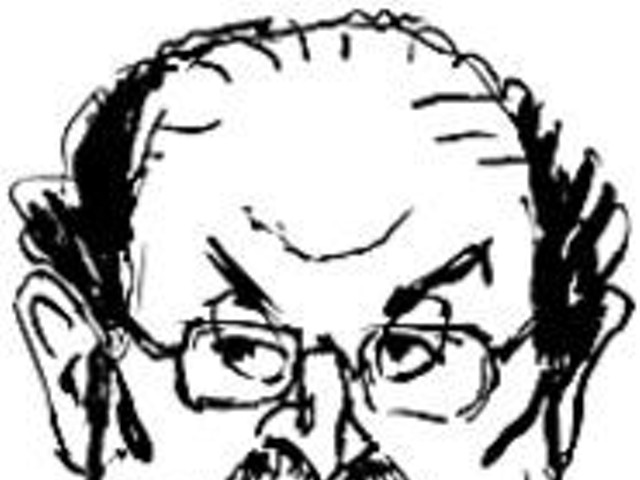Back in 1509, after the king of England dies, his 18-year-old son, Henry VIII, succeeds him on the throne. But not only has Henry's father died, so, too, has his older brother (who would have become king had he lived). The new king's advisors determine that Henry should marry his brother's young Spanish widow, Catherine of Aragon, and thus continue an alliance with Spain. The Catholic Church must give a special dispensation for this unorthodox marriage, but the proper palms are greased and the marriage goes forward.
That's the background. Now fast-forward two decades. When Catherine is unable to provide a male heir, Henry discards his faithful wife and marries the unpopular but fertile Anne Boleyn. The Catholic Church disapproves of this divorce, so Henry also discards his religion and becomes head of his own church. When a trusted adviser, the saintly Sir Thomas More, refuses to condone the king's precipitous actions, Henry has More's head cut off.
This is head-y stuff indeed. It's no surprise, then, that for 400 years these events have been fodder for dramatists from Shakespeare to Robert Bolt. But here's the rub: It's not the facts, melodramatic though they are, that fascinated Shakespeare and Bolt and many a playwright in between; it's the underlying human drama. (How does a husband feel when he sends his once-beloved wife and daughter into exile?) No playwright has ever succeeded in bringing this story to life by relying solely on the facts, because the facts alone are unreliable. They're too sketchy and contradictory to be trusted.
It's true that writers of historical drama love research. But that research is not an end in itself. At some point the writer must put the research aside and make a giant leap of faith. In this instance, the writer must believe that he or she knows what Henry, Catherine and Anne are feeling. Until that occurs, drama will be stillborn.
But it's at this very point that the Historyonics Theatre Company, which takes pride in restricting its scripts to factual data ("Every word you're about to hear is true"), suddenly finds itself hamstrung. An epic story that requires a soaring dramatist instead has been cobbled into a patchwork of factoids and quotes.
As Henry VIII, Tom Murray exudes a commanding presence. But he doesn't give a commanding performance, because there's little beyond attitude and exposition for him to perform. As he stands on his plinth with nowhere to go, he resembles nothing more than a bull in a holding pen, claustrophobically awaiting release into the arena. One senses that the actor in Murray would be more satisfied portraying Robert Bolt's fictional Henry in A Man for All Seasons.
With the proper subject, the Historyonics approach to theater can elicit fascinating results. The company's most recent offering, American Rosies: Women at Work in World War II, deeply stirred many attendees who were still reeling from the World Trade Center attacks. But this current production lacks immediacy, involvement -- in a word, drama. One hopes that Court of Two Wives is but an anomaly in Historyonics' imaginative repertoire.
On a brighter note, the Kirkwood Theatre Guild opened its 70th season last week with Charley's Aunt, that great-granddaddy of cross-dressing farces. Long before Jack Lemmon and Tony Curtis hid behind curls in Some Like It Hot, and even longer before Dustin Hoffman took to wearing mascara in Tootsie, generations of actors have endured that rite of passage that entails donning a dress for Charley's Aunt.
Stage farce has come to be synonymous with doors. Audiences can almost assume that the more doors there are on a set, the funnier the play will be. Charley's Aunt has only one door, and it must be acknowledged that the hinges on this 109-year-old play are getting a little rusty.
Nevertheless, in this production, which is propelled by Doug Shelton's frenetic yet admirably controlled performance as the lovestruck Jack Chesney, all the cast seems to be having fun, and their high spirits are contagious. Both onstage and off, everyone who contributes to the well-being of this unpretentious community theater -- from the warm greeter at the front door to the woman who passes out complimentary mints at intermission -- seems to be having a good time; consequently, so do we.
Sometimes the formula for felicitous theater is as simple as that.





